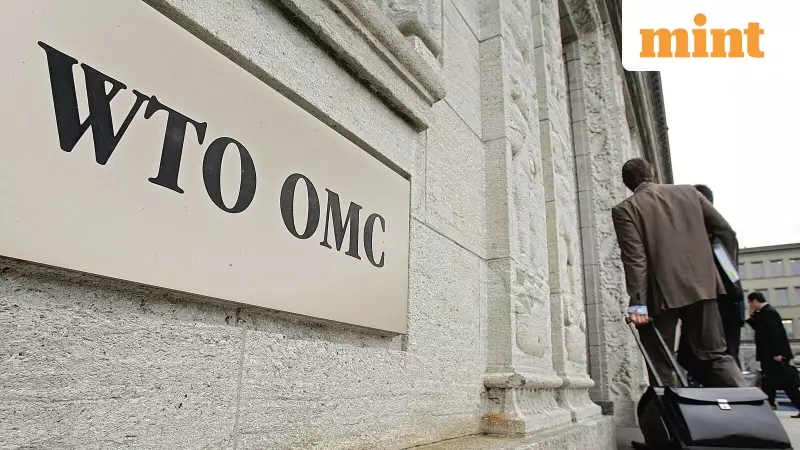
India Clarifies Position at WTO on Agricultural Imports
India has officially informed the World Trade Organization (WTO) that it has not prevented any member country from exporting key agricultural products such as milk and cream powders, maize, mustard oil, rapeseed oil, and sunflower oil. The official submission reveals that the WTO-notified quota windows for these farm goods remained largely unutilized during the fiscal year 2025. This demonstrates that India's import patterns are shaped by market fundamentals and tariff policies, not by restrictive protectionist measures.
Understanding the Unused Quotas and Market Dynamics
According to a WTO paper reviewed by Mint, not a single application was received for three out of the four tariff rate quotas (TRQs). A TRQ is a mechanism that allows a fixed quantity of goods to be imported at a lower tariff rate. India had set an attractive in-quota tariff of 15% for both skimmed milk and cream powders (with a quota of 10,000 tonnes) and for maize (with a quota of 500,000 tonnes).
Abhijit Das, the former head of the Centre for WTO Studies in New Delhi, explained the situation. He stated that domestic production is sufficient to meet demand, eliminating the need for imported products. He also pointed out that the administrative procedures for using the quotas can be cumbersome for importers, which may be another reason for the lack of utilization.
The data supports this claim of robust domestic production. Over the last decade, India's dairy sector has seen remarkable growth. Milk production surged by 63.56%, from 146.30 million tonnes in 2014-15 to an impressive 239.32 million tonnes in 2023-24, maintaining an annual growth rate of 5.7% and solidifying India's position as the world's largest milk producer.
Similarly, for maize, official data from the agriculture ministry showed a strong harvest of 43.41 million tonnes in FY25, up from 37.66 million tonnes in the previous fiscal year. This ample supply meant there was no price advantage for importers to utilize the quota system.
How Tariff Policies Outshone Quotas
The story was different for edible oils, but it still underscored the dominance of tariff policy over quota mechanisms. For mustard and rapeseed oil, the standard Most-Favoured-Nation (MFN) tariff was the same as the in-quota tariff. This left no financial incentive for traders to go through the TRQ process. As a result, the small volume of imports reported was through the general import route, not the quota. The TRQ for this commodity is 150,000 tonnes.
The most striking case was that of sunflower oil. Despite having a TRQ of 150,000 tonnes, total imports skyrocketed to over 3.5 million tonnes during the year—more than 20 times the quota limit. This happened because the Indian government had set the applied MFN tariff on crude sunflower oil lower than the in-quota rate in FY25. Consequently, importers entirely bypassed the quota system to import freely at the cheaper duty.
This trend highlights a clear pattern: India's food import profile in FY25 was driven by deliberate tariff policy. With edible oil inflation being a persistent concern, the government proactively lowered import duties to cool domestic prices, effectively making the TRQ framework redundant for these commodities. As trade economist Abhash Kumar summarized, "When the applied tariff becomes cheaper than the in-quota tariff, traders naturally ignore the quota."






